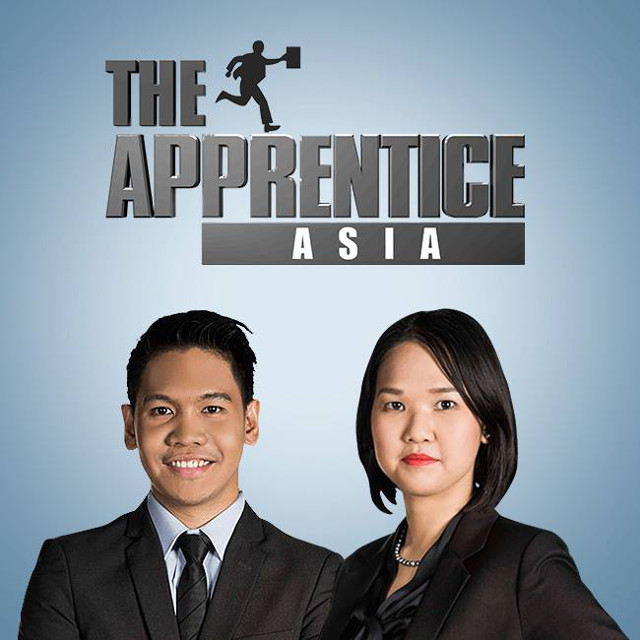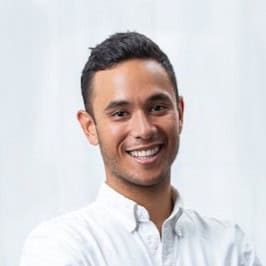Table of Contents

The importance of career planning and development dawns upon many after several years (or decades). By then it’s too late to change career tracks.
For fans of The Apprentice – Asia, Andrea Loh from Singapore would ring a bell. She was the runner-up in the hugely popular first season of the super-hit franchise. Along with the winner of the show (Jonathan), she was also among the youngest participants in the show, going head-to-head with seasoned professionals in the show that was described as the toughest job interview.
The show which puts ‘interns’ through gruelling simulated & real challenges from the corporate world, has excellent lessons for MBA aspirants & students.
Andrea takes us through her on-screen and off-screen journey. She also picked up a few powerful career planning lessons that she generously shares with us.
Career Planning & Development Lessons from my Apprentice experience
by Andrea Loh
(first published on MBA Crystal Ball on 10 Mar 2015)
It all happened in a massive blur – just 4 months ago, I was filming myself on my Macbook in my bedroom after pulling yet another 14-hour workday in Singapore, with only a week to go for the audition deadline I’d seen on TV. Today, I was in a boardroom in Kuala Lumpur — THE Boardroom — awaiting my fate as to whether or not I’d be Tony Fernandes’ pick as his apprentice.
In 2013, The Apprentice Asia went on to be screened in 22 countries all over Asia, ranking first amongst the coveted PMEB viewer segment, and torrented (don’t quote me!) by many others all over the world. But for all its international reach and recognition it brought me, all I could grapple with was the fact that I came so close, only to finish second.
Post-show, I quit my job as a commercial litigation lawyer, packed my bags, and took 4 months off to soul-search. Since January 2014, I’ve lived and worked in Hyderabad, India, as a commercial manager in a technology start-up.
These are 3 career planning lessons that stood out to me from the entire experience, and I hope they encourage you to find your own path as well.
#1: Don’t Put Off The Hard Career Questions
At the Final 4 stage of The Apprentice, we were interviewed by 3 prominent CEOs (General Electric, AirAsia, and a local Malaysian conglomerate) — pretty nerve-racking if you ask me! One question I found difficult to answer was about where I saw myself fitting in within Tony’s empire. In other words, what was the career path I saw myself taking, were I to clinch the job?
Career Path: i) the way that someone progresses in their professional life, typically through a series of occupations with one or more organisations, AND ii) something we think we’re on and sometimes follow blindly.
A recurring question I get is something along the lines of “Seriously? How did you move from Singapore to India?”, served up with a large dose of incredulity. For me, the move was a very straightforward choice. It wasn’t so much about the city; it was more about the job opportunity.
Let me explain: For me, I knew my aim was to work in some type of commercial role, in the “front-end” of a business as it were.
Being a lawyer in private practice, I knew my exposure would be restricted to the legal industry if I followed the “career path” of a typical lawyer. And because law wasn’t giving me relevant skills anymore, all signs were clear that I had to go elsewhere to learn what I required to transition to a commercial role in the future.
So I took the plunge, quit my job, and made the leap! Result: career switch within 2 years. Without those interviews on The Apprentice, I would probably have taken a longer time to come to this conclusion, so I’m sharing this as my first lesson for everyone.
The lesson is not to put off the difficult question of one’s career path, and consequently switch ASAP, because the longer you dither, the more time you waste. Making a career switch is no mean feat, so the earlier you do it, the lesser the opportunity cost.
Andrea shares her experience at The Hub Singapore’s 12th F*ckup Nights
Similarly, the longer you wait, the more entrenched you become in a particular skill set and industry, and the greater the inertia to switch later on. I’ve met plenty of people who tell me they just can’t walk away from their jobs anymore, because starting again would be too much of a sacrifice.
So how can this be applied? My advice would be to first know the area you want to work in— and be honest with yourself here! Don’t be afraid to shoot for the moon, because as the saying goes, then at least you’ll land among the stars. Next, ask yourself whether what you’re currently doing matches or complements where you want to be. If they don’t match, your next move is clear: make that switch ASAP!
#2: Age and Experience Are No Substitutes For Drive and Passion
Being the youngest contestant on The Apprentice was pretty daunting — everyone had years of work to their name, and similarly bloated titles. Oddly enough, the 2 finalists (myself and Jonathan Yabut, the eventual winner) were the youngest girl and boy respectively. Coincidence, or a sign or something more?

Tony himself said that it was passion and drive that brought us to the final two, not necessarily the experience that other candidates had. Here at work in India, a quote we have on our wall is,
“my discipline will beat your intellect anytime of the day”.
I’m going to tweak that a tad to say that discipline (and drive, and passion!) will beat experience. In my opinion, people can always learn new skills, but the determination to learn those skills well and quickly is what really counts at work and in life.
Here’s more anecdotal evidence for you: Based on my 2 years in the hierarchical legal industry, age matters because seniority how it functions. It’s a lock-step industry where you get promoted and rewarded based on the number of years of experience you have in practice.
As a contrast, in the fast-paced technology industry which I’m currently in, age is just a number which takes a significant backseat to one’s skills and smarts — you need look no further than all the Silicon Valley twenty-something keyboard geniuses! The world economy’s changing, and we would do well to keep pace with that change.
This is good news because it means you don’t need to have decades of experience in an area before venturing into it. All this ties in very well with my first point — don’t be afraid to make that switch, as long as you’re convinced about the new mountain you want to scale!
The application of this lesson necessarily entails some level of competition between you and other potential candidates, be it a job, a promotion, or a new career. In order to apply this, you’ll have to get out there, realise there is a ton of competition for every spot, and choose not to be daunted by it! (I suppose its a concept that’s more familiar to Indians, all 1.2 billion of you.)
Just remember: Your determination to succeed and bright-eyed bushy-tailed eagerness can and will beat someone else’s experience. And that should be enough reason to give it a go.
#3: Be Fearless
The tasks we had to accomplish each week on The Apprentice were often larger than life. They ranged from re-designing the AirAsia crew uniforms (side note: we won, and they’re wearing our tweaked designs a year on!), to pitching appliances to retail bigwigs from Sogo and Giant Hypermart, conceptualising and executing marketing campaigns for the Volkswagen Beetle and Nestle’s Dolce Gusto capsule coffee machine, and even running the Hilton hotel for a day.
 In the finale, we had 3 days to put together a black-tie event from scratch and run the auction at the event (side note: we raised more than RM1.1 million, the equivalent of 2 crore INR, in that one night alone!), where attendees included CEOs, ambassadors, and society elite.
In the finale, we had 3 days to put together a black-tie event from scratch and run the auction at the event (side note: we raised more than RM1.1 million, the equivalent of 2 crore INR, in that one night alone!), where attendees included CEOs, ambassadors, and society elite.
So let’s be frank: I knew next to nothing about these tasks I was supposed to execute. I was trained to read contracts and advocate for my clients in front of a judge, not to determine consumer tastes, execute product pitches, or organise high-profile events. And the only logical response to all this would have been to be scared sh*tless.
But what is it that got me to the final, going through 8 tasks, numerous interviews, and the millions of times I doubted my own capabilities?
Fearlessness.
This is the final step in the trilogy of lessons I’m sharing here, and really the most abstract of the lot. It’s hard to tell someone “Be Fearless”, when they’re faced with a pile of emails and the daily slog in front of them, as opposed to an intense competition for a job where stakes are high.
What I can do is write from an anecdotal perspective: Whether it was driven by a foolish overestimation of myself, or sheer “fight or flight” mode kicking in, each day I attacked the challenge in front of me like I had nothing to lose.
Fearlessness is crucial to thriving (not merely surviving!) in the workplace because it requires an abandonment of traditional, in-the-box paradigms and behavior in favour of a more gung-ho, risk-taking approach.
It could be advocating testing a different product in the market, speaking up for an unpopular idea in a management meeting, or even simply disagreeing with your boss.
Fearlessness doesn’t exist in a vacuum, by the way. You have to be fearless with reference to something. A good friend of mine always says,
“If you don’t stand for something, you’ll fall for anything.”
The corollary to fearlessness is a sense of conviction, belief in something that you hold close to your heart. Fearlessness just means not letting conventions get in the way of something you believe in.
So at the end of the day, I think for anyone contemplating their professional life (and let’s face it, we millenials do that constantly, trying to strike a work-life balance while grappling with unfulfilled dreams), it’s useful to:
- ask yourself the difficult questions;
- be determined to seek out a path that you’re passionate about; and
- act on your decisions with fearlessness.
My career trajectory has been deeply impacted by taking these steps, and while I’ve got a long way ahead of me still, I can rest in the knowledge that I’m getting closer to my goals with each move I make. All the best and press on!
Image source: AXN Website
Alex Tanglao
Alex Tanglao is a seasoned professional with expertise in startups, legal technology, and business management. Alex has held leadership roles, including Director of Strategy & Operations at Elevate Digital, where he streamlined operations and managed teams, and Director of Ecommerce at Allies of Skin, driving global growth. Alex served as Marketing Manager at Zegal, driving legaltech and educating businesses on startup legal topics. With a background in content strategy from LawPath, Alex combines a deep understanding of legal services with operational excellence and innovative marketing strategies to help businesses thrive in dynamic, fast-paced environments.






